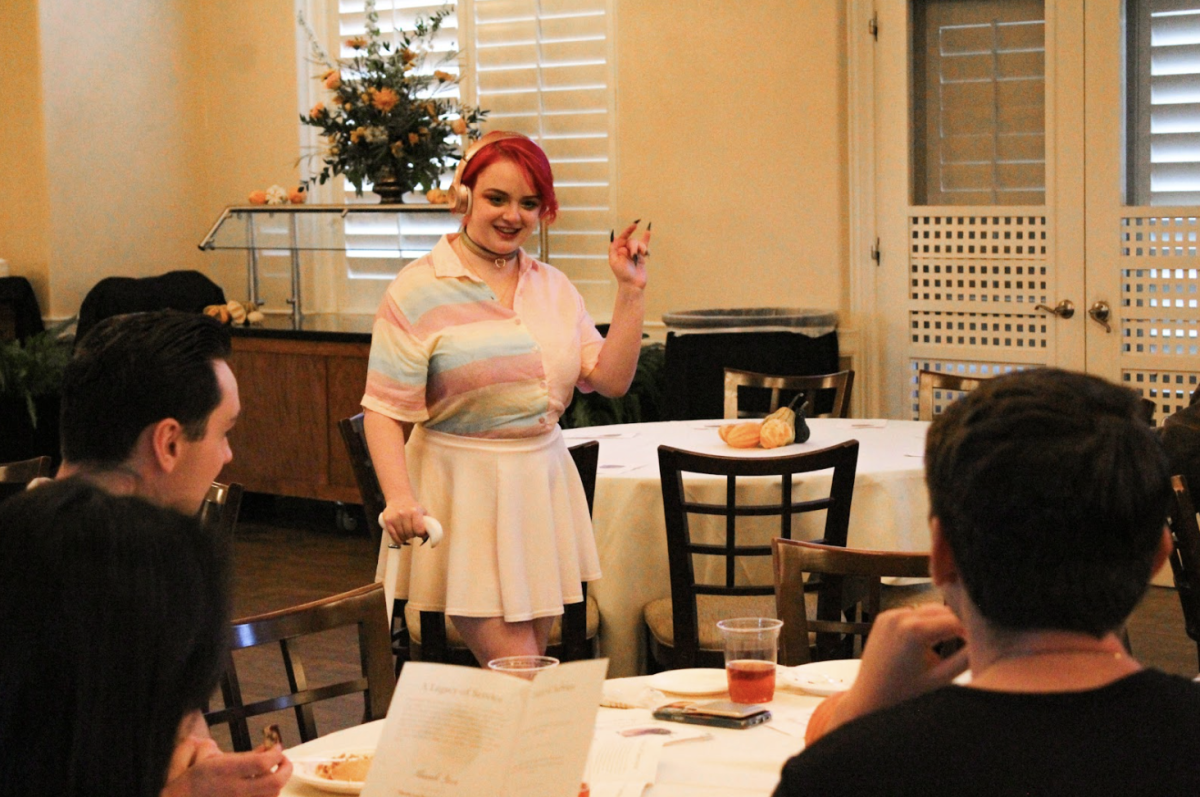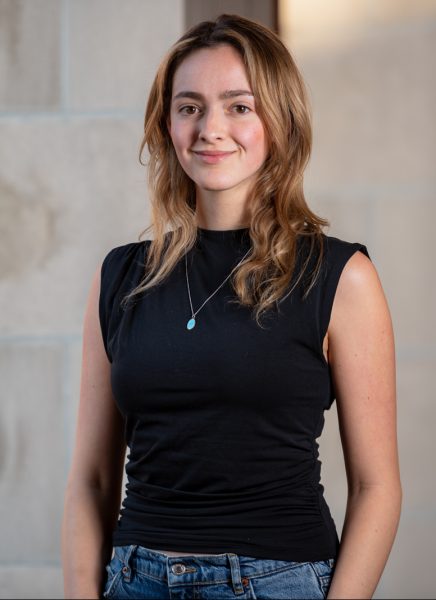Spectrum, once known as the Gay Straight Student Alliance, held a banquet on Monday to honor 2020 Wake Forest graduate, Omar Benjamin, who passed away at the beginning of the Fall 2023 semester. Benjamin’s work and advocacy for Wake Forest’s queer community inspires current students to continue leading the student organization that helps foster a queer and non-queer community in which he had once been president.
“I think I’m in a different place in my life journey of both grieving and celebrating [Benjamin],” Antayzha Wiseman, the assistant director of the LGBTQ+ Center and Spectrum’s current adviser, said as she looked around at three round tables in the Magnolia Room filled with students and faculty. “When we speak of [Benjamin], we must first talk about a legacy of love.”
Wiseman was Benjamin’s classmate and close friend, and remembers his magnetizing presence well. At the event, she spoke alongside Spectrum members and LGBTQ+ staff. She reminisced on Benjamin’s love of cooking, interest in photography, adamant video-gaming and his deep obsession with Paramore’s music.
“[Benjamin] moved through this campus as if he had no idea that his very existence challenged the fabric of this culture,” Wiseman said. “He was a being of beautiful, Black, queer multiplicity wrapped up in a blanket of warmth and energy so powerful it can only be eclipsed by the Sun itself.”
During his time at Wake Forest, Benjamin worked to give queer voices a platform to share their experiences by organizing “Out at Wake” — a student panel intentionally composed entirely of Black queer students. The panel Benjamin organized was the first and only panel of Black queer voices at Wake Forest thus far.
Kayla Lisenby-Denson, director of the LGBTQ+ Center, also remembers Benjamin’s impact on their life and the lives of others at Wake Forest. They recall his gift of bringing different groups and diverse identities together in a way that produced harmony within the LGBTQ+ Center. They said Benjamin frequently challenged staff and faculty everyday by asking difficult questions around inclusivity and gender that were not being asked in 2018.
“I have learned a lot since the 2017 version of me that first met [Benjamin], and I had a lot of work of my own to do,” Lisenby-Denson said. “He really… challenged me to do that.”
Unlike Wiseman and Lisenby-Denson, who miss their friend dearly, the current members and officers of Spectrum were never able to meet Benjamin. The students still feel his presence, however. The club intends to continue his work by amplifying Black, queer voices as well as all queer voices by organizing social events and student panels in the future.
Spectrum plans to bring back the “Out at Wake” panel and revive other events such as the Drag Show that were left behind when Benjamin graduated.
Spectrum currently operates under a conditional charter but is working toward an official charter. President Nick Beckom and Vice President Snowy Deville appreciate Benjamin and other LGBTQ+ alumni’s substantial progress toward embracing queer identities at Wake Forest, but they simultaneously acknowledge the ongoing need for safe spaces for queer students on a campus that is predominantly white and heterosexual.
“One of the major things [Spectrum] wants is a space outside of the LGBTQ+ Center for queer students,” Beckom says. “A lot of people who are either still in the closet or are out feel like if they go into the LGBTQ+ Center, it just kind of proves it.”
READ THE OLD GOLD & BLACK’S MEMORIAL FEATURE ON OMAR BENJAMIN
According to Lisenby-Denson, when the club was originally established, a phone number was passed around — or whispered around — by word of mouth. A student could call the number and receive a message detailing where and when the next club meeting would take place. The location would constantly change to keep the members physically safe and their identities private.
Deville and other Spectrum members intend to create a physical and theoretical place for students who have dealt or are dealing with intolerance. They believe that having an alliance with straight students is crucial to bridging the gaps of bias that are ingrained in an antiquated campus culture.
“Spectrum can be whatever you want it to be whether it’s just a social thing where you’re meeting other queer students, or you can also use it as a vehicle to educate the wider campus community about queer issues,” says a student who wishes to remain anonymous as they are not currently out.
According to Spectrum members, the student organization has faced challenges in recovering after the club’s implosion in previous years and as a result of often being mistaken as an Autism Awareness group. The club hesitates to clarify this publicly, as they do not want to deter neurodivergent students from the club.
Spectrum is a student organization designed for all types of students to bring unique identities and experiences as well as challenge our campus culture to embrace diversity. The students involved feel inspired by Benjamin’s legacy and optimistic about the future of the organization.
“[Benjamin] would be mortified to be in such a spot but also really proud,” Lisenby-Denson said. “The best way to honor his legacy is to just continue to create a network in a space where everyone is welcome regardless of how … or when they show up.”

















